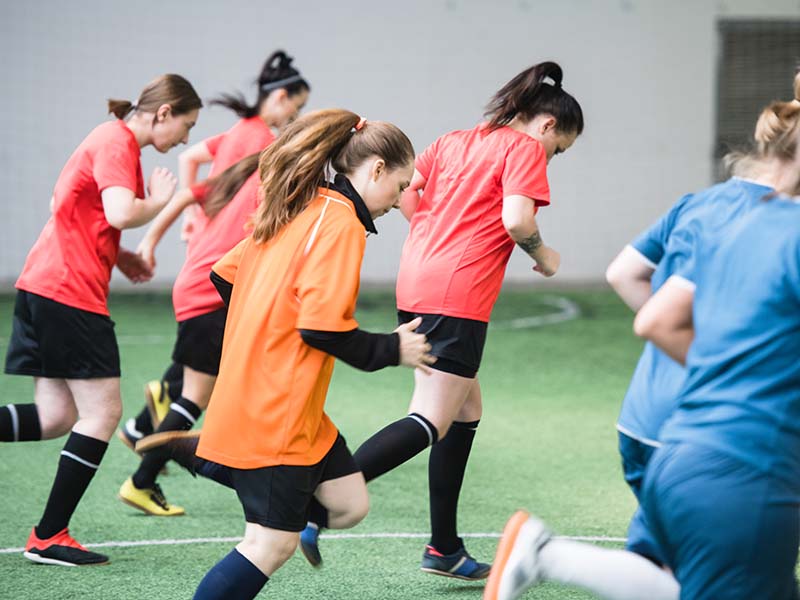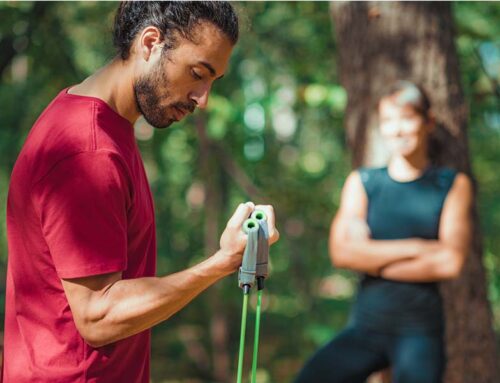
Share This Story, Choose Your Platform!
Student Athlete Tips for Academic and Athletic Fitness
It is important high school and college students to find and keep their balance when it comes to the time spent on sports, studies, and other activities. Student athletes need to succeed academically to stay on the team and work towards their career goals. But they also need to keep healthy physically and mentally to maintain peak performance.
Reducing Stress
Time Management and planning ahead are important. Keep a planner listing important dates for school, athletics, and recreation/fun. Once you have a routine it is easier to follow and will become normal practice. Schedule your rest! Get 8 to 9 hours of sleep per night especially for athletes. Your body heals while at rest. Start a daily stretch routine. Tight muscles can lead to insomnia and stress. Stretching will improve flexibility and reduce muscle tension. Maintain a positive mindset. Things can get overwhelming at times. Focus on the good things in your life, surround yourself with positive people, practice positive self-talk, and identify negative feelings and work towards changing them.
Practice Good Posture
Athletes daily habits can contribute to their health, fitness and performance. But daily life before reaching the training area or field typically consist of hours texting, typing, studying, playing computer games, writing, eating, and driving. These daily activities affect the posture of the athlete. The forward rounding of the shoulders and upper back can take a toll on the cervical spine and cause inflammation, fatigue, headaches, nerve impingement, tight muscles, stiffness, joint wear and tear, dizziness and result in sport performance issues.
A coach may recognize a student athlete has some postural issues that are affecting their sport performance. Posture is often assumed to be a static standing or sitting position, but an athlete can have good or bad posture for example when running, throwing, kicking, tumbling, tackling, jumping, swinging, serving, diving, and more. Good posture is important to maintain muscular and skeletal balance which protects the body against injury or deformity. Repetitive and prolonged training with bad posture can lead to poor performance, inhibited muscles, injury, and decrease endurance capacity, just to name a few. If the goal of the athlete is to win, be safe, hold positions, fast or controlled movement, skill efficiency, and for that they need to have good posture.
Customized Posture Screenings for Athletes
There are different ways to screen an athlete’s posture. Visual observation method, Wall posture, Plumb line method, and the Photographic/Digitization method. To be beneficial the posture screening method should provide the individual with a report and recommendations on how to improve. We recommend the Photographic/Digitization method because it provides visual, quick and accurate posture results to the athlete and makes use of the latest technology. When you pair the report visual report with posture correction exercises, you now have a winning combination. It is beneficial to have your student athlete’s posture screening taken so they can work on the recommended corrective exercise as the foundation of their sport conditioning program.
Hydration and Healthy Eating
Drink water. It’s so simple but most Americans fail at meeting their daily water intake goals. Check with your doctor for your specific amount but general recommendations for daily water intake is for an athlete to divide their body weight in half and drink an ounce per pound of body weight. If you can get anywhere near this amount your body will thank you. It is also important for athletes to have healthy eating habits so they can play sports at a high level and also keep the mind sharp for their academics. Good nutrition helps keep energy levels up and reduce brain fog. If you can plan out your meals and snacks you can also plan for shopping to help stay on track. Timing your meals will help maintain a steady level of energy throughout your day and workouts. Eat for performance. Ex. 45 min. to 1 hr. prior to an event eat a carbohydrate-rich snack. After event eat a snack or meal with protein to replenish. Make sure you are eating enough so that your body can achieve and maintain peak performance. If you do not have enough nutrients you may break down muscle rather than build it. Student athletes that eat enough calories will have better concentration for their studies, will be able to move faster, stronger and maintain their weight.



